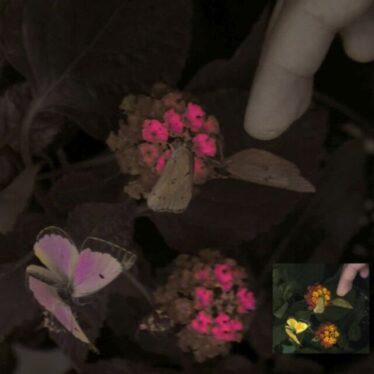Who among us hasn’t wondered about how animals perceive the world, which is often different from how humans do so? There are various methods by which scientists, photographers, filmmakers, and others attempt to reconstruct, say, the colors that a bee sees as it hunts for a flower ripe for pollinating. Now an interdisciplinary team has developed an innovative camera system that is faster and more flexible in terms of lighting conditions than existing systems, allowing it to capture moving images of animals in their natural setting, according to a new paper published in the journal PLoS Biology.
“We’ve long been fascinated by how animals see the world. Modern techniques in sensory ecology allow us to infer how static scenes might appear to an animal,” said co-author Daniel Hanley, a biologist at George Mason University in Fairfax, Virginia. “However, animals often make crucial decisions on moving targets (e.g., detecting food items, evaluating a potential mate’s display, etc.). Here, we introduce hardware and software tools for ecologists and filmmakers that can capture and display animal-perceived colors in motion.”
Per Hanley and his co-authors, different animal species possess unique sets of photoreceptors that are sensitive to a wide range of wavelengths, from ultraviolet to the infrared, dependent on each animal’s specific ecological needs. Some animals can even detect polarized light. So every species will perceive color a bit differently. Honeybees and birds, for instance, are sensitive to UV light, which isn’t visible to human eyes. “As neither our eyes nor commercial cameras capture such variations in light, wide swaths of visual domains remain unexplored,” the authors wrote. “This makes false color imagery of animal vision powerful and compelling.”
Read 11 remaining paragraphs | Comments


